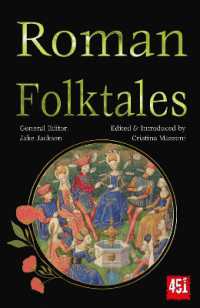Full Description
The book is the first of its kind in seeking to make students "practice ready" for representing parties in international arbitrations. It covers the full scope of the role of arbitration counsel in advising clients, from drafting arbitration clauses to representing clients in arbitrations to prosecuting and defending court actions at the enforcement stage. Throughout the book, the authors make students come alive to the ethical problems faced by arbitration practitioners on a day-to-day basis, with the objective of preparing them for the choices arbitration lawyers actually have to make.
The book provides a distinctive way to teach central transferable skills that are vital for the success of any junior practitioner. It provides opportunities to practice client counseling, clause drafting to achieve client goals, and the composing of advice of how to respond to proposed contract language received during negotiations. It further provides opportunities to engage in drafting of documents that are less frequently included in the law school curriculum but are vital to the practice of law. These documents include requests for the production of documents, requests for the production of electronic documents, motions requesting emergency relief (temporary restraining orders), as well as dispositive motions and affidavits. The book therefore assists law schools in making available alternative ways in which to achieve basic institutional learning outcomes.
The book is one of the first to teach students how to engage in a global practice of law through simulations inspired by real life disputes. The global practice of law involves challenges that exceed those encountered in the domestic setting. Questions of legal culture, applicable law, and client expectations differ markedly in global practice. This book is one of the first to provide students with a practical means to deal with such challenges. It is thus particularly well suited for use in classes with an LLM contingent as the simulation scenarios permit LLM students to bring in their home country experiences fully into simulation exercises.
By teaching these transferable skills, the book provides an engaging way to introduce students to the skills they will need to perform well on the Multistate Performance Test as part of their bar examination. The Multistate Performance Tests asks students to draft a specific piece of work product based on a closed packet of materials. The chapters are set up in such a way that students will be exposed to that way of encountering new kinds of work product and dealing with such work product on the basis of a closed packet of materials. This experience thus also has significant bar study benefits.
In order to achieve these benefits, the book uses a simulations approach. To prepare students for the problems faced by arbitration counsel, the book introduces them to different simulations that present real-world practice problems. Though many of these problems are discrete, certain simulations are referred to multiple times to show students that procedural choices made in the beginning of an arbitration have significant implications for later stages of proceedings. This flexible use of the simulation method introduces students to the need to address some discrete problems for clients while also alerting them to the fact that client advice can have a long half-life.
The authors are seasoned arbitration practitioners and academics. The authors have in fact handled numerous arbitrations together and have tried to make available their best practices in this book. Michael Nolan is a partner in the Washington, DC office of Milbank LLP. He has served as counsel in more than a hundred disputes. He serves as an arbitrator in a wide range of cases and is a member of the International Advisory Committee of the American Arbitration Association. Michael Nolan also teaches as an Adjunct Professor of Law at Georgetown Law Center. Frédéric G. Sourgens is a Professor of Law at Washburn University School of Law. He is the author of more than 60 publications, including approximately a dozen books on arbitration or arbitration-related subjects. His work has been cited as authority by numerous arbitral tribunals and counsel. Frédéric Sourgens also remains active in arbitrations in a number of different capacities.
Though flexible in how it can be used, the book is specially designed for use in arbitration skills classes. It further can support arbitration clinic students in learning the basics of arbitration and can further support arbitration seminars looking to take a more detailed look at the inner working of one of the most controversial areas of law judging by the constant stream of U.S. Supreme Court cases on the subject matter.








